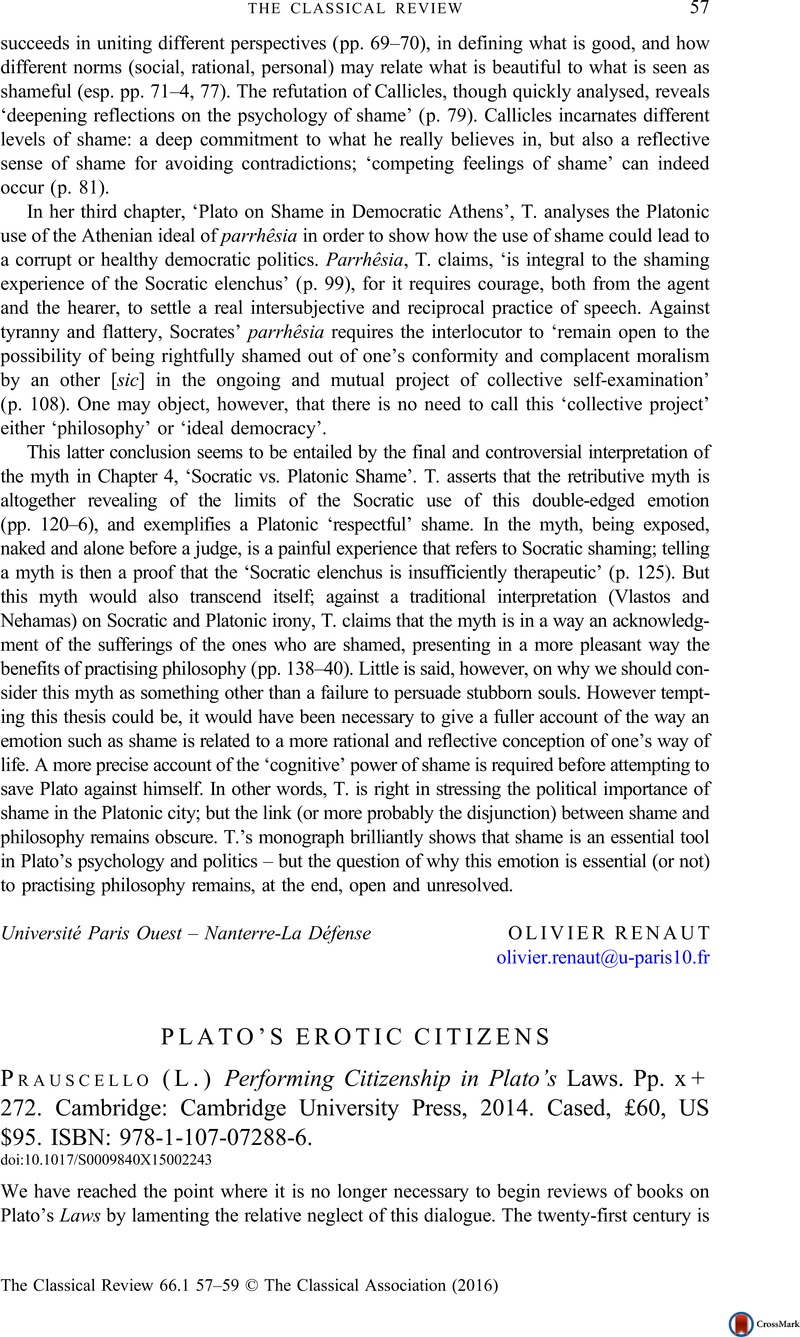No CrossRef data available.
Published online by Cambridge University Press: 25 November 2015

1 I mention this because I think Aristotle's criticism is on target: see my ‘Aristotle on the Extent of the Communism of Plato's Republic ’, AncPhil 13 (1993), 313–21Google Scholar.
2 On the view that the Laws remains (nearly) as authoritarian as the Republic, see e.g. Morrow, G., ‘Plato's Conception of Persuasion’, PhR 62 (1953), 234–50Google Scholar, and my ‘Persuasion and Compulsion in Plato, Laws 10’, Polis 24 (2007), 91–111 Google Scholar. On the other side of the debate, see e.g. Bobonich, C., ‘Persuasion, Compulsion, and Freedom in Plato's Laws ’, CQ 41 (1991), 365–87Google Scholar, and R.C. Clark, The Law Most Beautiful and Best: Medical Argument and Magical Rhetoric in Plato's Laws (2003). The literature on this debate continues to grow.